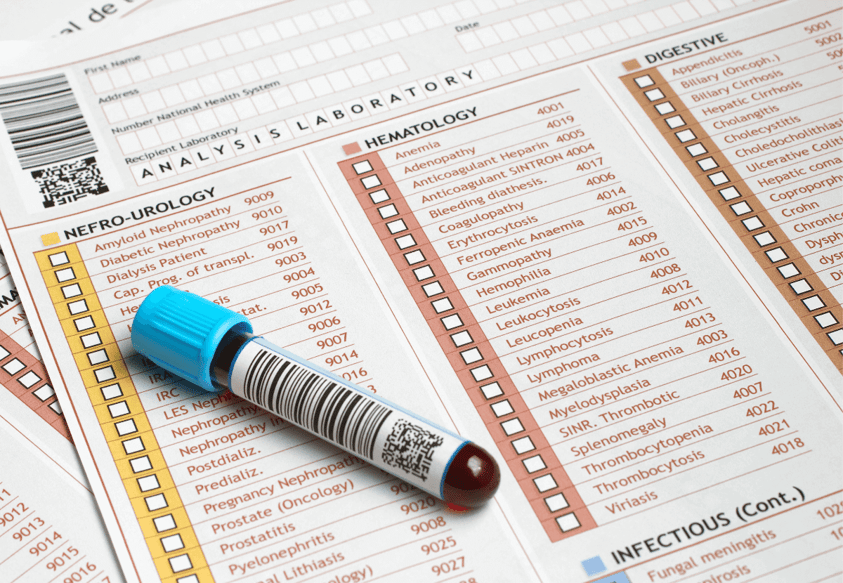Autoimmunity presents itself in many different ways, which can make the road to an autoimmune diagnosis long and frustrating. More than 15 million Americans live with some form of autoimmune disease or disorder.
These disorders cause the immune system to become overactive, essentially turning against the body’s otherwise healthy tissues and cells. Despite this seemingly simple, blanket explanation, many who struggle with autoimmunity endure extensive testing and long periods of uncertainty while waiting for an accurate autoimmune diagnosis.
It is estimated that individuals with autoimmune disease see an average of four doctors over a period of four years before they receive a correct diagnosis. Our founder and CEO, Mette Dyhrberg, went through a similar journey, visiting several doctors and receiving 6 different diagnoses after she started experiencing confounding symptoms at age 14.
What is it about autoimmunity that makes it so difficult to figure out? Here are a few explanations to start:
Sudden and unpredictable onset
Some autoimmune diseases are trickier to diagnose than others, presenting with symptoms that appear suddenly and cross many medical specialties. These symptoms often come and go with unpredictable “flares” or spikes and are not always present during scheduled visits to the doctor, so may take extra time for accurate medical assessment.
Common autoimmune disease symptoms, like fatigue and pain, are difficult - if not impossible - to objectively measure, and many patients will require numerous tests before an autoimmune diagnosis can be determined.
Clear lab or imaging abnormalities may lag behind symptoms for a long time - for example, it can take 10 years after the initial onset of back pain characteristic of ankylosing spondylitis before changes are visible on standard X-rays.

Symptoms may mimic those of other diseases
There are over 80 well-described autoimmune diseases. Quite often, they share symptoms like fatigue, aching muscles, joint swelling, low-grade fever, trouble concentrating, numbness and tingling in the extremities, hair loss, and skin rashes. When these symptoms overlap, it becomes more difficult for doctors to make accurate diagnoses.
Unique presentation
Apart from vague symptoms, autoimmune diseases also present differently in each individual case. Lupus can show up as hair loss in one person and as joint pain in another. Because of this, doctors can’t rely on symptoms alone to determine the nature of the disease. This can drastically extend periods of observation.
Take charge: Four steps to health while you wait for an autoimmune diagnosis
The sooner you spot your symptoms, the sooner you can do something to address them. Here are four ways you can take charge of your health while waiting for a diagnosis:
1. Track your symptoms
Since symptoms of autoimmune disorders are notoriously unpredictable, it's important for you to track the changes you notice in your body as precisely as possible. Make note of activities that lessen the symptoms and help you feel better. Prepare for your next doctor’s visit by bringing a detailed list of your symptoms, which will help your doctor narrow down diagnostic testing.
2. Watch out for triggers
Diet and lifestyle play important roles in autoimmunity as triggers for its initial development as well as for on-going symptom severity. An obvious example of a food trigger is gluten which causes a dramatic immune reaction that leads to intestinal inflammation and malabsorption in people with celiac disease. Gluten also causes symptoms similar to those experienced by sufferers of celiac disease (and is suspected of causing a wide variety of other health problems) in people who repeatedly test negative for celiac disease but have non-celiac gluten-sensitivity.
The list of potential triggers for people with autoimmunity goes well beyond gluten to include lesser known and often surprisingly unexpected food sensitivities like kale, avocados and tomatoes. Other factors like viruses, sleep, stress and even toxins in your environment may also be triggers, leading to autoimmunity-related symptoms like headaches, fatigue, and skin rashes.
Paying attention to how what you’re eating or specific aspects of your lifestyle is making you feel will help you find your triggers so you know what to avoid.
3. Think holistically
The right team will support you on your path to an autoimmune diagnosis by helping you think holistically about your health. This team can include certified health and wellness experts, who complement the knowledge your care team brings to the table.
While a doctor will help outline the best pharmaceutical treatment options, a health and wellness coach will help you look holistically at other factors that may be contributing to your symptoms in the first place. At Mymee, this holistic approach guides our ability to help clients find their unique triggers with a special focus on understanding which ones should be avoided to minimize flares.
4. Adopt a healthier lifestyle
A healthy lifestyle helps keep the immune system in balance, while less healthy practices may cause the immune system to overreact. Exercising regularly can help you maintain a healthy weight and avoid risk factors like obesity or blood sugar imbalances, which have been linked to conditions like RA, psoriasis, and multiple sclerosis.
It’s important to consider that medication is not meant to undo the harm of maintaining a poor lifestyle, and in some cases may even make it worse. Wherever possible, non-medical treatments like diet modifications, sleep hygiene and stress reduction may offer a safer alternative to support your health, and if you’re not sure, consult your doctor.
The road to an autoimmune diagnosis may not be short or clear cut, but taking measured, proactive steps will help to ease your journey along the way.



